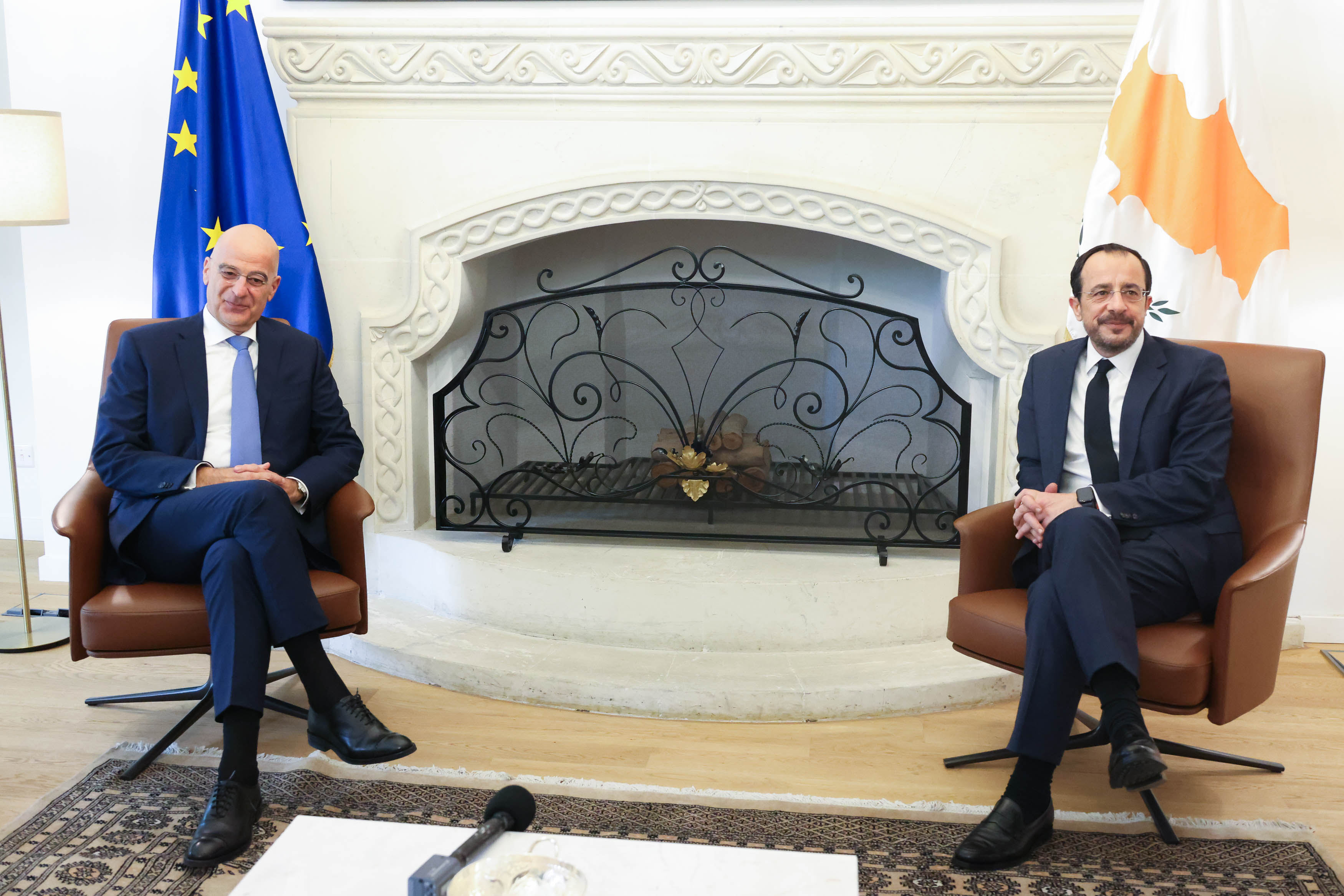Cyprus’ forthcoming undertaking of the Council of the European Union’s rotating presidency in the first half of next year presents a “golden opportunity” to the defence industries of both Cyprus and Greece, President Nikos Christodoulides said on Monday.
Welcoming Greek Defence Minister Nikos Dendias to the presidential palace, he said Cyprus’ six-month term as the holder of the rotating presidency will allow both countries to “see how we can push even further the issues of defence and security for Cyprus and Greece”.
“These are important sectors, taking into account the Turkish occupation and the Turkish provocations, but also more generally that we are geographically in areas of particular geostrategic importance,” he said.
He also made reference to “the developments in our region”, as well as the EU’s Security Action for Europe (Safe) defence procurement instrument, through which Cyprus secured over €1 billion of funding and Greece secured a little less than €788m.
Dendias, meanwhile, said Cyprus’ undertaking of the Council of the EU’s rotating presidency will “provide a huge opportunity”.
Earlier, he had met his Cypriot counterpart Vasilis Palmas, who had said after that meeting that the discussion had “focused mainly on issues concerning the EU’s Safe programme, which concerns strengthening the EU’s defence industry and strengthening Europe’s defence”.
“We consider it self-evident, within the framework of the Safe programme, that the two ministries be in cooperation, so as to further upgrade our defence capabilities and our defensive armour to secure our sovereignty and territorial integrity,” he said.
Dendias also spoke after his meeting with Palmas, saying that he and his Cypriot counterpart had “exchanged views on a rapidly changing but extremely complex geopolitical situation, especially in the eastern Mediterranean region”.
He added that the Safe programme “provides an opportunity” for both countries to “deepen cooperation”.
Asked about the prospect of Turkey joining the Safe programme, he said that “Vasilis and I are perhaps among the few people in Europe who have sat down and read the regulation concerning the Safe programme”.
The regulation, he said, is “extremely complex, written in the strange language of the Brussels bureaucracy, precisely so that everyone can understand what they think and express what they judge”.
Despite this, he said, “there is a clear commitment on the part of the European Commission on the way in which contracts between the EU and third countries will be introduced for discussion”.
Then asked if such matters will require unanimity among the EU’s 27 member states, he said that this is “self-evident”, because, he explained, “if someone threatens the EU itself, it is obvious that they cannot participate in the mechanism which is built to deal with this aggression”.
“We expect all European countries to unite around the self-evident concept of protecting the European space, not only geographically, but of European values, of democracy, and of the European approach to the protection of human rights,” he said.
European Council president Antonio Costa had said during a visit to Cyprus in September that the Safe programme’s rules are “clear”, and that the programme is “open to third countries, but to third countries which do not constitute a threat to the security of any member state”.
Meanwhile, last month, Greece’s foreign ministry’s spokeswoman Lana Zochiou confirmed that her country intended to veto Turkey’s participation in the programme unless the country rescinds a parliamentary resolution signed in 1995 regarding both country’s claims in the Aegean sea.
The Turkish parliament had declared at the time that any unilateral action by Greece beyond 12 nautical miles from the country’s coast in the Aegean sea would constitute a “casus belli” – a reason to go to war.
“As long as the casus belli remains, Greece will not accept Turkey’s participation in Safe. The lifting of the casus belli is a necessary condition for the discussion to begin,” Zochiou said.
In addition to Cyprus and Greece, 17 other EU member states are also in line to receive funding as part of the €150bn allocated by the European Commission to the programme earlier this year.






Click here to change your cookie preferences